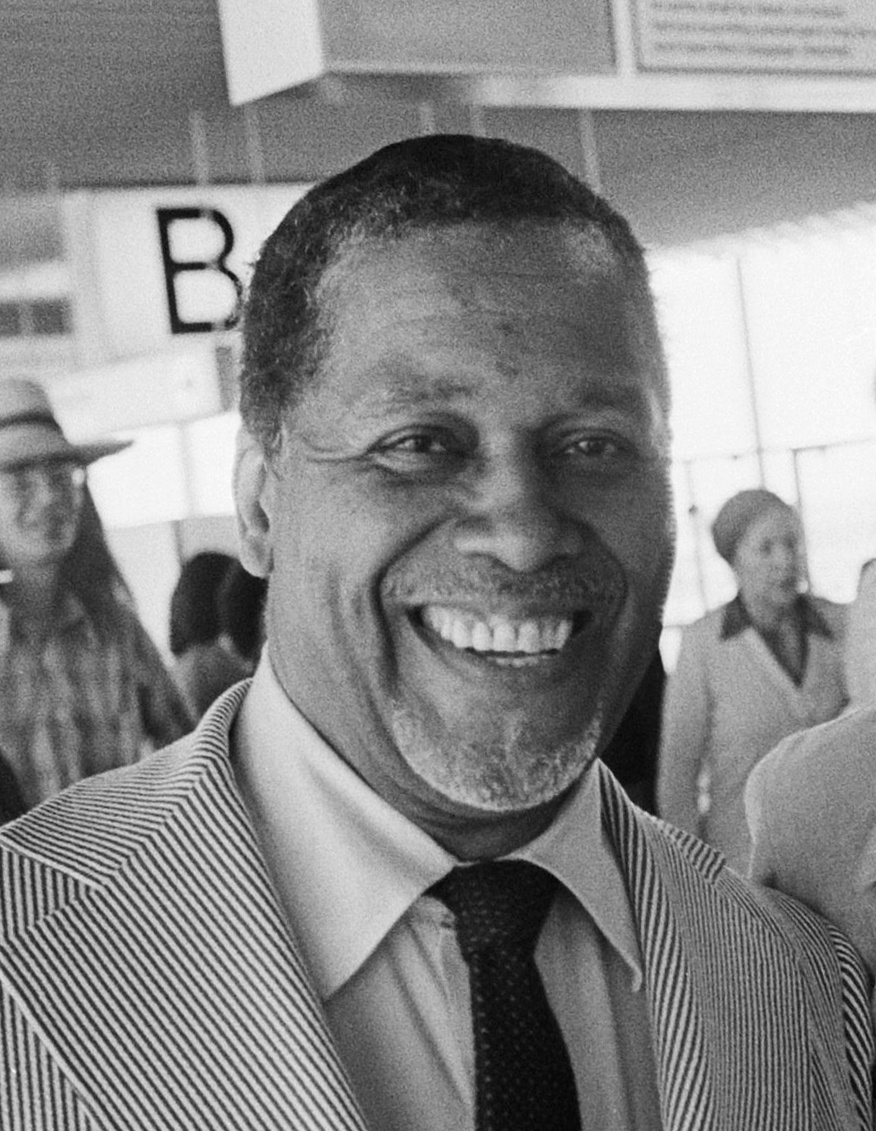
John Lewis (pianist)
John Aaron Lewis (May 3, 1920 – March 29, 2001) was an American jazz pianist, composer and arranger, best known as the founder and musical director of the Modern Jazz Quartet.
John Lewis
John Aaron Lewis
May 3, 1920
La Grange, Illinois, U.S.
March 29, 2001 (aged 80)
New York City, U.S.
Jazz
- Musician
- composer
- arranger
Piano
1940s–1990s
Early life[edit]
John Lewis was born in La Grange, Illinois, and after his parents' divorce moved with his mother, a trained singer, to Albuquerque, New Mexico when he was two months old. She died from peritonitis when he was four and he was raised by his grandmother and great-grandmother.[1][2][3] He began learning classical music and piano at the age of seven.[4] His family was musical and had a family band that allowed him to play frequently and he also played in a Boy Scout music group.[5] Even though he learned piano by playing the classics, he was exposed to jazz from an early age because his aunt loved to dance and he would listen to the music she played.[5] After attending Albuquerque High School,[6] he then studied at the University of New Mexico,[4] where he led a small dance band that he formed[7] and double majored in Anthropology and Music.[5] His piano teacher at the university was Walter Keller, to whom he paid tribute on the title composition of the Modern Jazz Quartet's 1974 album In Memoriam.[8][9] Eventually, he decided not to pursue Anthropology because he was advised that careers from degrees in the subject did not pay well.[5] In 1942, Lewis entered the Army and played piano alongside Kenny Clarke, who influenced him to move to New York once their service was over.[10] Lewis moved to New York in 1945[10] to pursue his musical studies at the Manhattan School of Music and eventually graduated with a master's degree in music in 1953.[4] Although his move to New York turned his musical attention more towards jazz, he still frequently played and listened to classical works and composers such as Chopin, Bach and Beethoven.[5]
Music[edit]
Style and influence[edit]
Leonard Feather's opinion of Lewis's work is representative of many other knowledgeable jazz listeners and critics:[41] "Completely self-sufficient and self-confident, he knows exactly what he wants from his musicians, his writing and his career and he achieves it with an unusual quiet firmness of manner, coupled with modesty and a complete indifference to critical reaction."[42] Lewis was not only this way with his music, but his personality exemplified these same qualities.[5]
Lewis, who was significantly influenced by the arranging style and carriage of Count Basie,[43] played with a tone quality that made listeners and critics feel as though every note was deliberate. Schuller remembered of Lewis at his memorial service that "he had a deep concern for every detail, every nuance in the essentials of music".[44] Lewis became associated with representing a modernized Basie style, exceptionally skilled at creating music that was spacious, powerful and yet, refined.[37] In an interview with Metronome magazine, Lewis himself said: